Michael Bradley unfiltered: On his World Cup, best position, trophies

Atlanta, July 2015. It’s a blazing hot summer day outside. Inside, on the day before the U.S.’s Gold Cup semifinal against Jamaica, U.S. midfielder Michael Bradley sits with a bottle of water and takes in the question.
The topic isn’t rocket science: Does he feel more comfortable playing behind two U.S. forwards than he does behind one?
But you never know when the simplest of questions might trigger something meaningful. Bradley grew up in a family that doesn’t shy away from having what its members—including Bob, his father, the former U.S. coach—like to call “real conversations.” Conversations that are honest, conversations that move you forward, even if there might be some uncomfortable moments along the way.
- USA vs. MEXICO HUB: All of our CONCACAF Cup coverage
We’re about to have a real conversation.
This one will reveal Bradley’s unvarnished opinion about his World Cup 2014 performance, his thoughts on the meaning of responsibility, his mission statement on why you need to have “the balls” in the biggest moments not to hide on the field.
“This eternal debate about my best position honestly drives me crazy,” Bradley says. “Because so many people in my opinion fail to understand what I’m all about.”
Michael Bradley doesn’t do sound bites. He’s going to talk—calmly, plainly and yet passionately, straight through—for the next nine minutes and 43 seconds.
******
But first, a brief word about trophies. On Saturday, when the U.S. meets Mexico in the CONCACAF Cup at a sold-out Rose Bowl in Pasadena, California, there will be a trophy on the line, as well as a berth in the 2017 FIFA Confederations Cup in Russia.
This is not a friendly. As trophies go, there are more important ones in the global game, but it’s still a trophy. And it’s still USA-Mexico. And while it may be hard to believe, considering his standout career, Bradley has never been on the field to raise a trophy for club or country in his 12 years as a pro.
In 2007, Bradley’s U.S. team won the CONCACAF Gold Cup in Chicago, beating Mexico in the final, but Bradley had to watch the game on television from a hotel in New Jersey. He had been suspended for the final after receiving a red card in the semifinal, and so he hustled to join the U.S. Under-20 World Cup team just before its tournament started in Canada.
USMNT's Michael Bradley has been driven to succeed his whole life
Bradley missed the U.S.’s epic 2009 Confederations Cup final loss to Brazil after getting a late red card in the semis, and he was on the field for all of the U.S.’s 4-2 loss to Mexico in the 2011 Gold Cup final.
With another trophy on the line, he played all 90 minutes for Roma in the 2013 Coppa Italia final, a crushing 1-0 defeat. “Against Lazio,” he says, shaking his head. Roma’s intracity rival.
You don’t get a trophy for winning the CONCACAF World Cup qualifying hexagonal tournament, which Bradley has done twice.
And so on Saturday, Bradley, now 28, could finally be on the field to raise a trophy. If he’s the U.S. captain, as is expected, he would literally be the first player to hoist it, an image that would become part of U.S. soccer history.
“The chance to lift a trophy, that’s special,” he says. “There’s no two ways about it. That’s why you play. You realize that the chance to win trophies, it’s not something that comes around every day. You have to take every opportunity you have, and grab it with both hands and be ready to give everything you have and be so committed and so determined to not let anything else throw you off.”
He says this in Atlanta, at the Gold Cup. The next day, the U.S. loses, in an upset, to Jamaica. Another chance to raise a trophy melts away. The next one comes now.
******
What is Michael Bradley all about? Let him tell you.
“When I’m talking about who I am as a player, as a competitor, as a leader, as a teammate, I’m always about the team, always ready to do whatever is needed to help us try to win,” he says, starting a nine-minute-plus soliloquy. “And I’ve always been like that. Even as a young player in the national team, that was always me.
USA, Mexico vie for Confederations Cup ticket, but how important is it?
“And so I come into any team that I’m on—the national team, Toronto FC, it doesn’t matter—every single time ready to take responsibility, ready to try to put as much on my shoulders as possible in a positive way to help the team be successful and help the team try to win. And at the end of the day it’s up to the coach to decide how he wants to fit that in in a given moment or in a given team.
“I think I’m a complete midfielder. I can attack. I can defend. I can score goals. I can set up goals. I can tackle. I can intercept balls. I can play a more disciplined role a little deeper. I can be more mobile. I can cover ground. I think I’m somebody who in the midfield can do anything that’s asked. Depending on the team, depending on the game, depending on what’s needed, I’m ready to take whatever is asked of me and spill my heart and soul and blood and sweat and tears into that, trying to be the best and trying to help the team be successful."
The question did not mention World Cup 2014. But Bradley wants to go there, wants to have a real conversation. He knows that some view his performance in Brazil—after being moved by U.S. coach Jurgen Klinsmann to the No. 10 role—in negative terms.
Jurgen Klinsmann's history vs. Mexico: Undefeated as player, coach
“After 20 minutes of the first game we lose Jozy [Altidore to a hamstring injury],” Bradley says.
“And at that point Clint [Dempsey] goes to play up front, and the onus is on me at that point to take more risks and to play more passes forward and to try to help us make chances and create things, yet also run and defend and come back and win tackles and help us try to be as hard to play against as possible.
“And so when people want to act like I was so bad at the World Cup, they can get lost. Because it’s easy to look and say, ‘Ah, what about this player? Ah, what about that player?’ But does anybody bother to watch all four games from start to finish and see everything that was put on my plate? Everything that was asked? And everything that I was able to do? No.
“Again, it doesn’t bother me, because you learn a lot about yourself in the hardest moments. And so when the weight of the world was ready to come down on my shoulders at the World Cup, it didn’t change me one bit. I was just as determined and just as committed and just as willing to keep going and keep going and keep going as I ever was. And so I look back on the World Cup in a very different way than a lot of people do.
“And like I said, the criticism doesn’t bother me one bit. What everybody doesn’t realize is I’m harder on myself than everyone. And I’m also not saying I was perfect. Absolutely not. I can and I have looked back at every minute of those games and gone through things I think could have been better or plays that could have been a little bit sharper or different. But for me the overall package and overall effort in terms of what went into that I look back on in a very proud and very positive way.
Three big questions facing USMNT ahead of playoff showdown vs. Mexico
“I use that example just in a way to answer your question about this debate about my position. As you get older, as you improve, as you become a better player, as you become a bigger player, there’s more responsibility to make big plays and make plays that make a difference. And so could I play deep in the midfield and kind of just sit in there and get the ball 100 times a game and complete, depending on the game, 80 or 90 or 100 passes? Yeah, I could.
“But is that really going to help? Is that enough for us to win? At the end of 90 minutes, is that going to be enough for us to be successful? Maybe some days. But on other days maybe it’s not going to be. And I think that is where I’ve started to understand that the responsibility now is to make plays that make a difference, in attack and in defense.
“And maybe that means losing a few more balls. Maybe that means a few plays that don’t come off. Maybe that means a few passes where the timing is a little off, and they don’t work. But it also probably means a few more assists, a few more goals, a few more plays that make the difference and help us win. At the end of the day, it’s up to the coach to decide where and how that all fits in. I’m ready to do anything that Jurgen or Greg [Vanney, the Toronto coach] or whatever coach I’m playing for at the time asks of me.”
It’s brought up that Bradley covered more distance—23.8 miles—than any other player during the World Cup 2014 group stage. And then he’s asked if that’s a good thing. What does it say? Does it matter?
In ever-changing USA landscape, USMNT vs. Mexico a complex rivalry
“Running isn’t about running,” Bradley says.
“It’s not just about saying I ran more than everybody. It’s about responsibility. It’s about the mentality and the balls to say, ‘You know what? I’m gonna go for it. I’m gonna give everything I have to help us try to win.' It’s not about miles. It’s not about the number of sprints. People who look at that and think that are totally missing the point.”
On Saturday, Bradley will almost surely be playing behind two forwards, Dempsey and Altidore, instead of the one he played behind at the World Cup (Dempsey) and in last month’s friendlies (Altidore). Honestly, he doesn’t really care.
“To go back to your question, one forward, two forwards, it depends on the team,” he says. “It depends on the qualities and the mix of the players around you. In a perfect world, every team would have this balance of structure versus freedom, skill versus work and how this all comes together.”
He’s hoping that balance comes together against Mexico in the Rose Bowl. He’s hoping to finally raise a trophy. It’s why you play the game, after all.
GALLERY: USA vs. Mexico through the years
USA vs. Mexico Soccer
November 11, 2016 – Mexico 2, USA 1
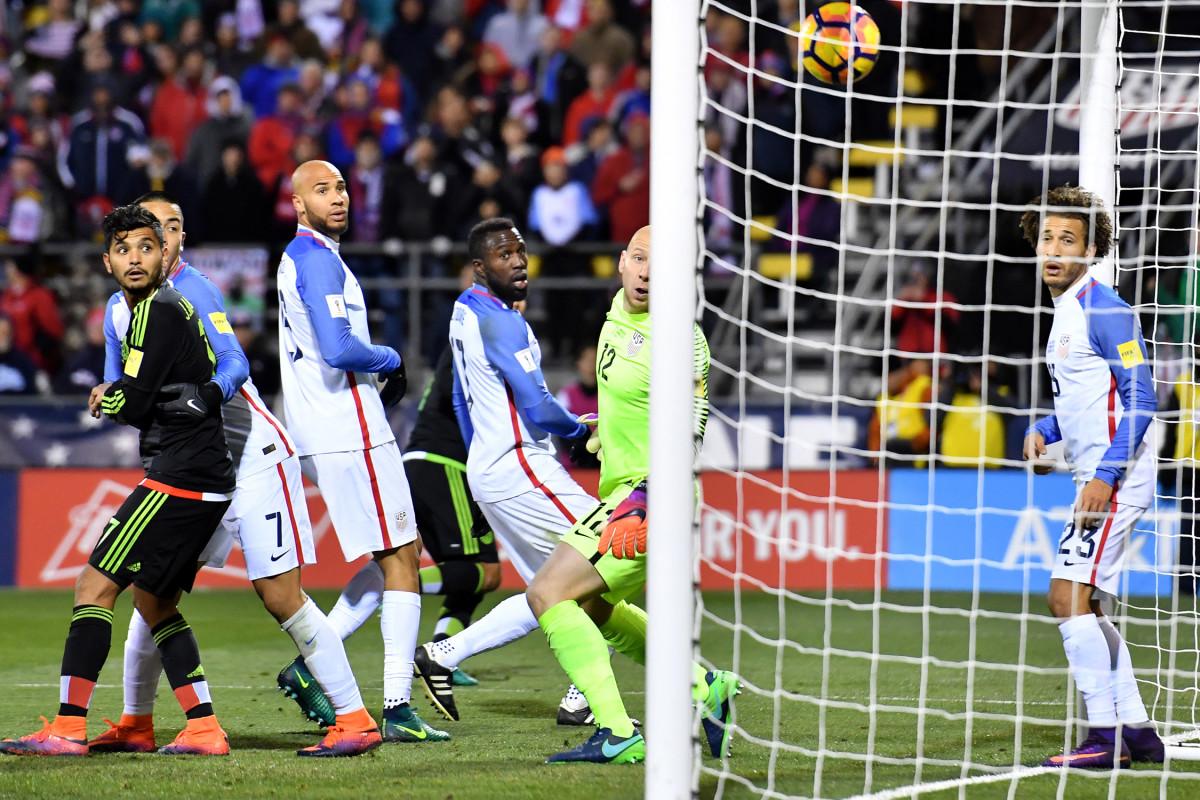
USA and Mexico players watch Rafa Marquez's 89th-minute header find the net in a famous World Cup qualifying win in Columbus for El Tri.
October 10, 2015 – Mexico 3, USA 2 (AET)
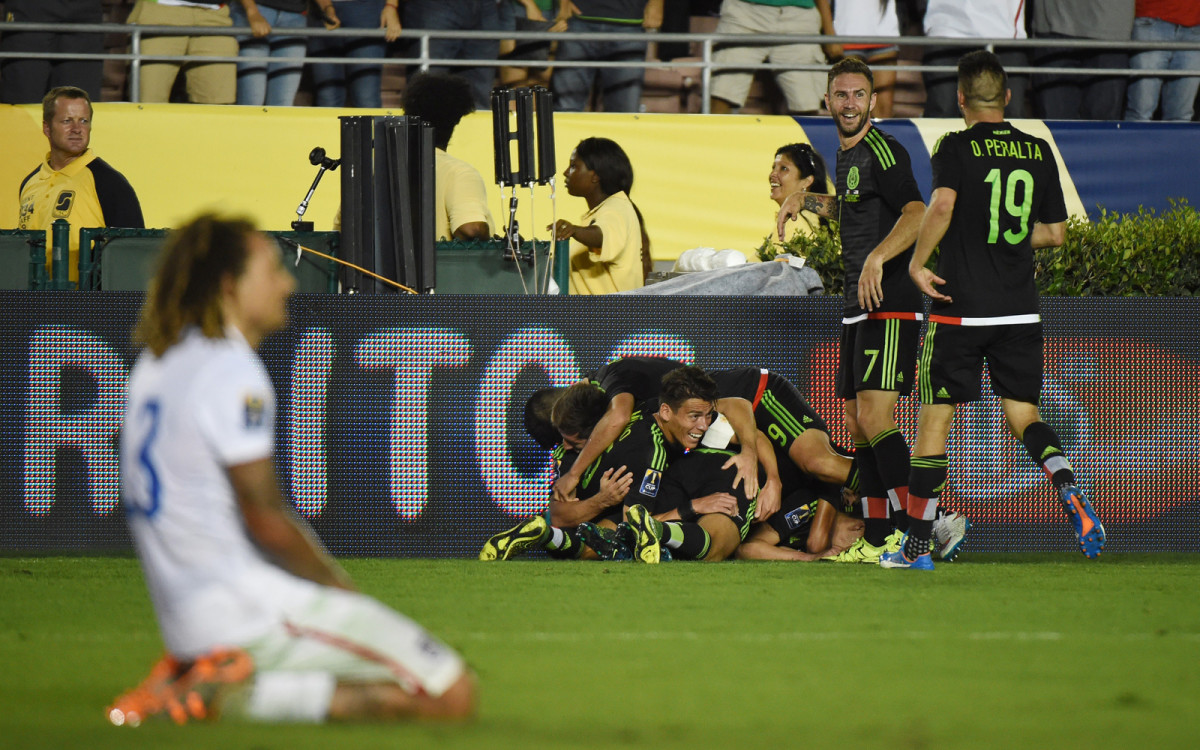
Jermaine Jones falls to his knees in disappointment as Mexico celebrates after Paul Aguilar's sensational volley in extra time captured the CONCACAF Cup for El Tri and sends the U.S. rival to the 2017 FIFA Confederations Cup.
April 15, 2015 — USA 2, Mexico 0
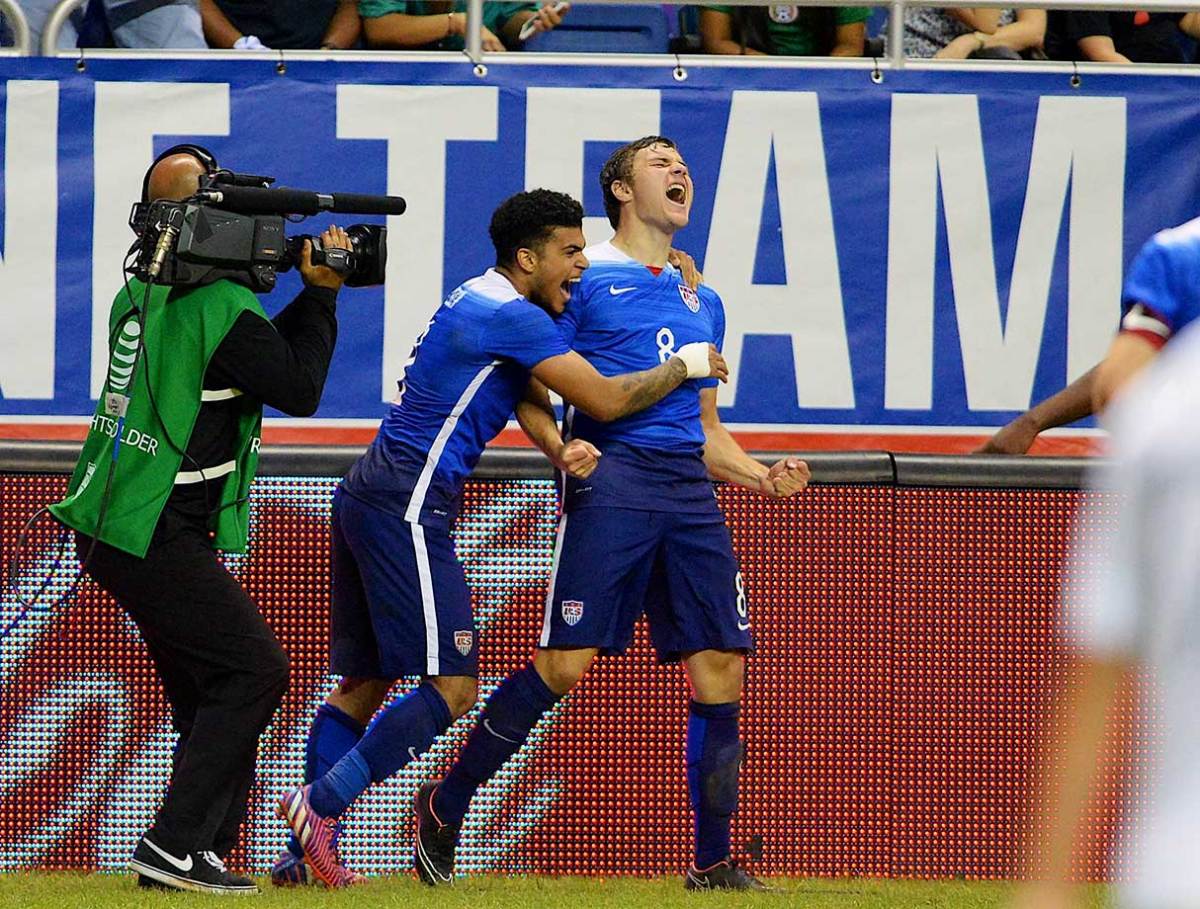
Stanford University's Jordan Morris marked his first senior national team start with his first international goal, sparking the USA in another 2-0 triumph over Mexico, this one at the Alamodome in San Antonio.
September 10, 2013 — USA 2, Mexico 0
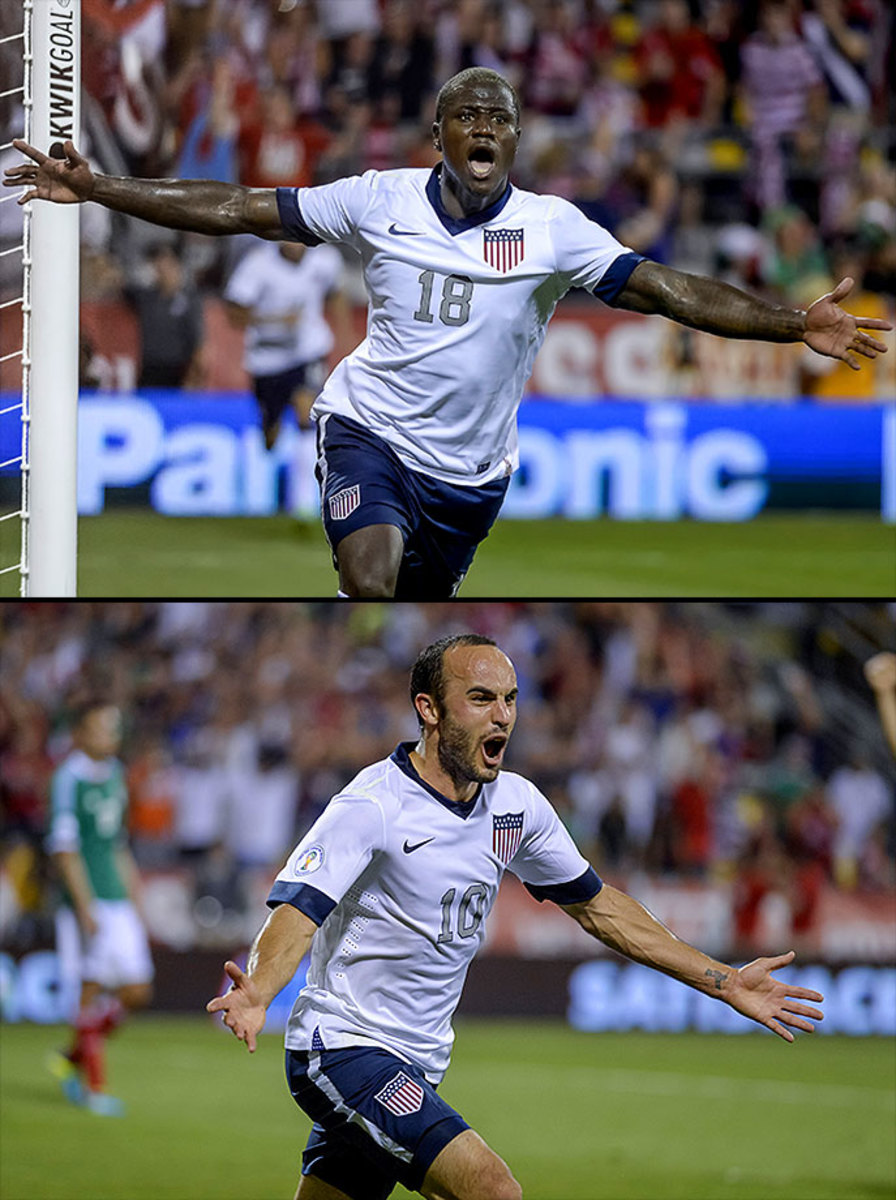
Eddie Johnson and Landon Donovan scored second-half goals to beat El Tri by the same score for the fourth consecutive qualifier in Columbus, Ohio.
March 26, 2013 — USA 0, Mexico 0
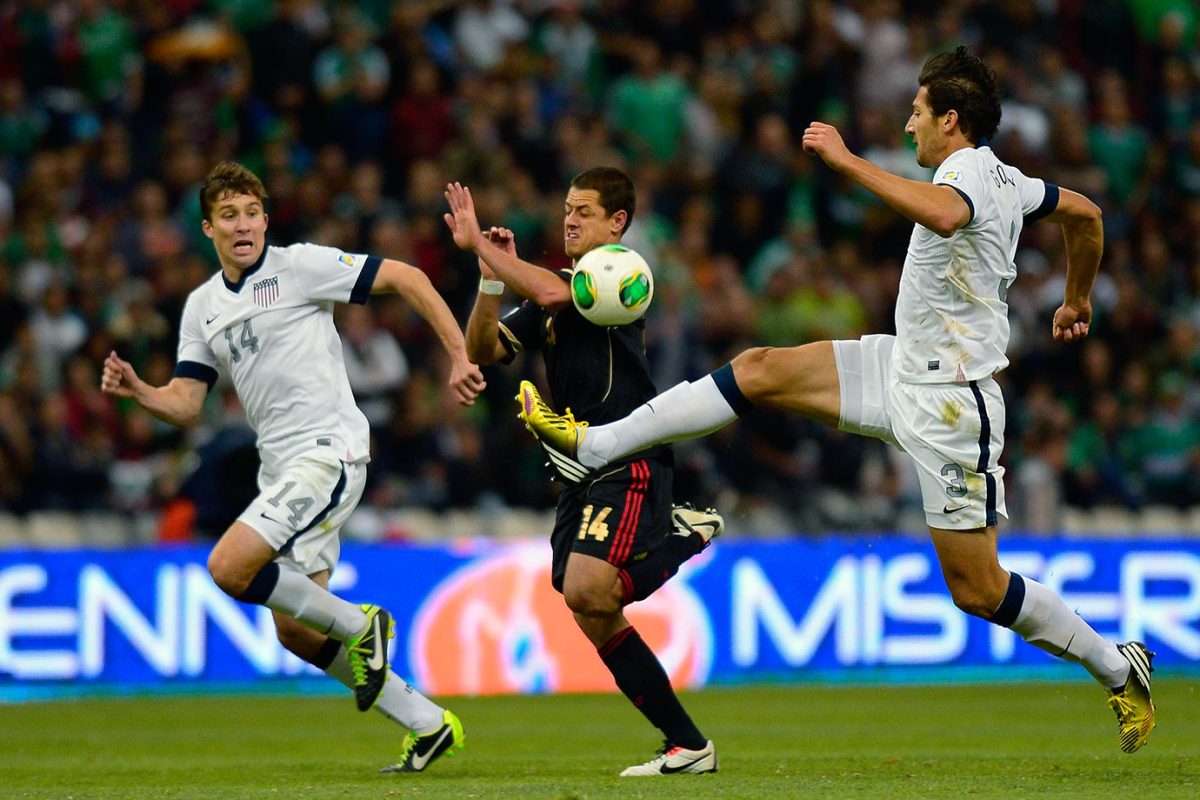
Clint Dempsey captained the U.S. to a 0-0 draw at Estadio Azteca, the second time ever the Americans registered a point in World Cup qualifying in Mexico (the other a 1997 tie). Defenders Omar Gonzalez and Matt Besler were the stars as Mexico couldn't cash in on several opportunities. The U.S. escaped to remain in second place in CONCACAF qualifying.
August 15, 2012 — USA 1, Mexico 0
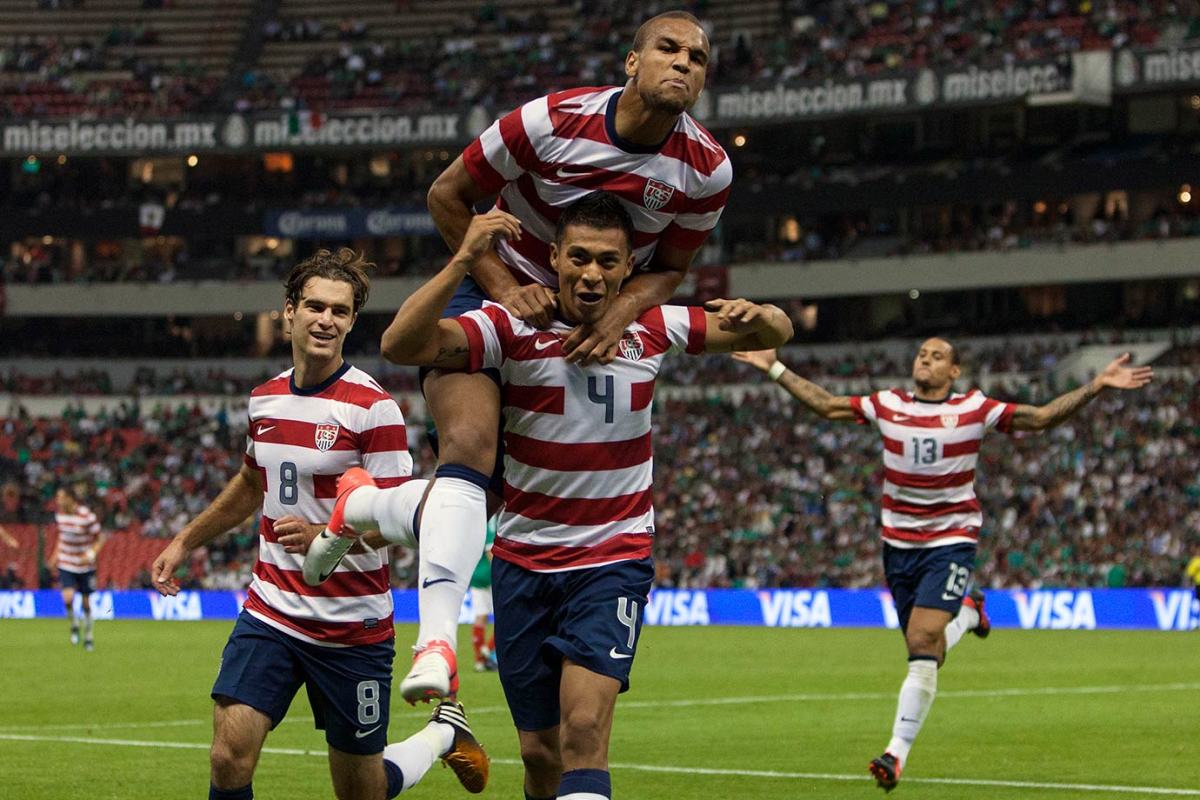
It took 25 attempts, but after this friendly, the United States could finally say that it had won at Mexico City's Azteca Stadium. Despite being outplayed for most of the match, the U.S. won thanks to an 80th-minute goal from Michael Orozco Fiscal — the first international goal of his career.
August 10, 2011 — USA 1, Mexico 1
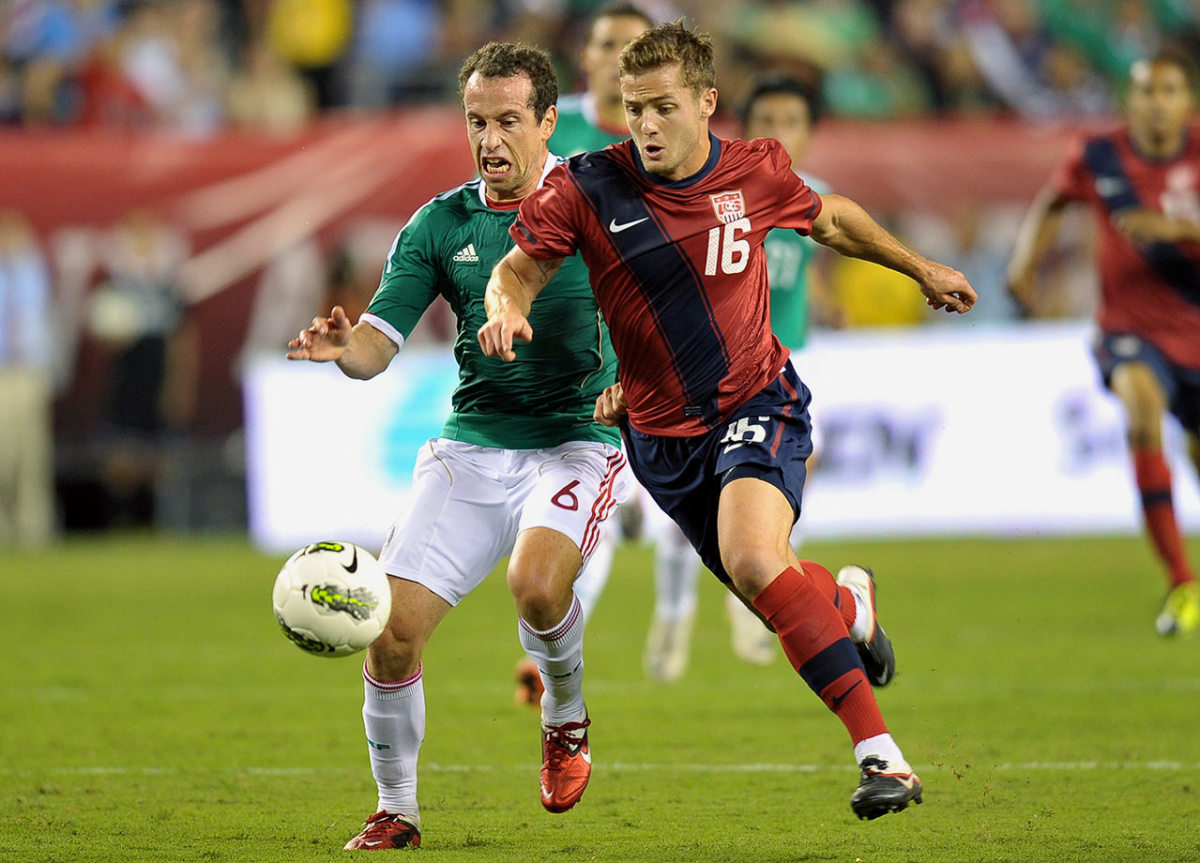
Head coach Jurgen Klinsmann's U.S. debut got off to a rough start, as the Americans trailed Mexico, 1-0 after an uninspired first half in Philadelphia. The U.S. showed more verve after halftime, though, and an impressive display from Brek Shea and a 73rd-minute goal from Robbie Rogers led to a 1-1 draw.
June 25, 2011 — Mexico 4, USA 2
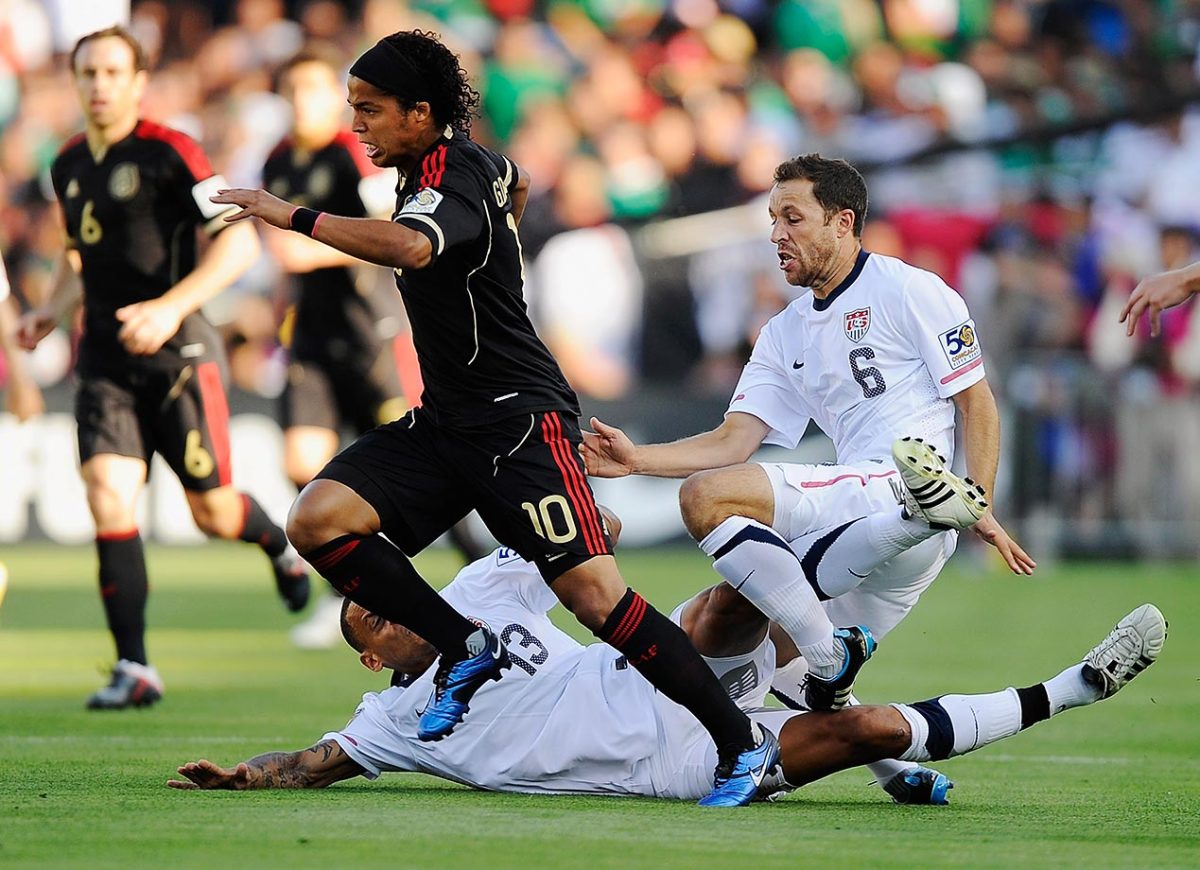
In the Gold Cup final, Mexico captured its second straight title in the battle for CONCACAF bragging rights and secured a berth in the 2013 Confederations Cup. Pablo Barrera scored twice; Giovani Dos Santos and Andres Guardado also had goals. The U.S. was up 2-0 early on Michael Bradley and Landon Donovan goals, but poor defending (partially due to the loss of Steve Cherundolo by injury) doomed the Americans.
August 12, 2009 — Mexico 2, USA 1
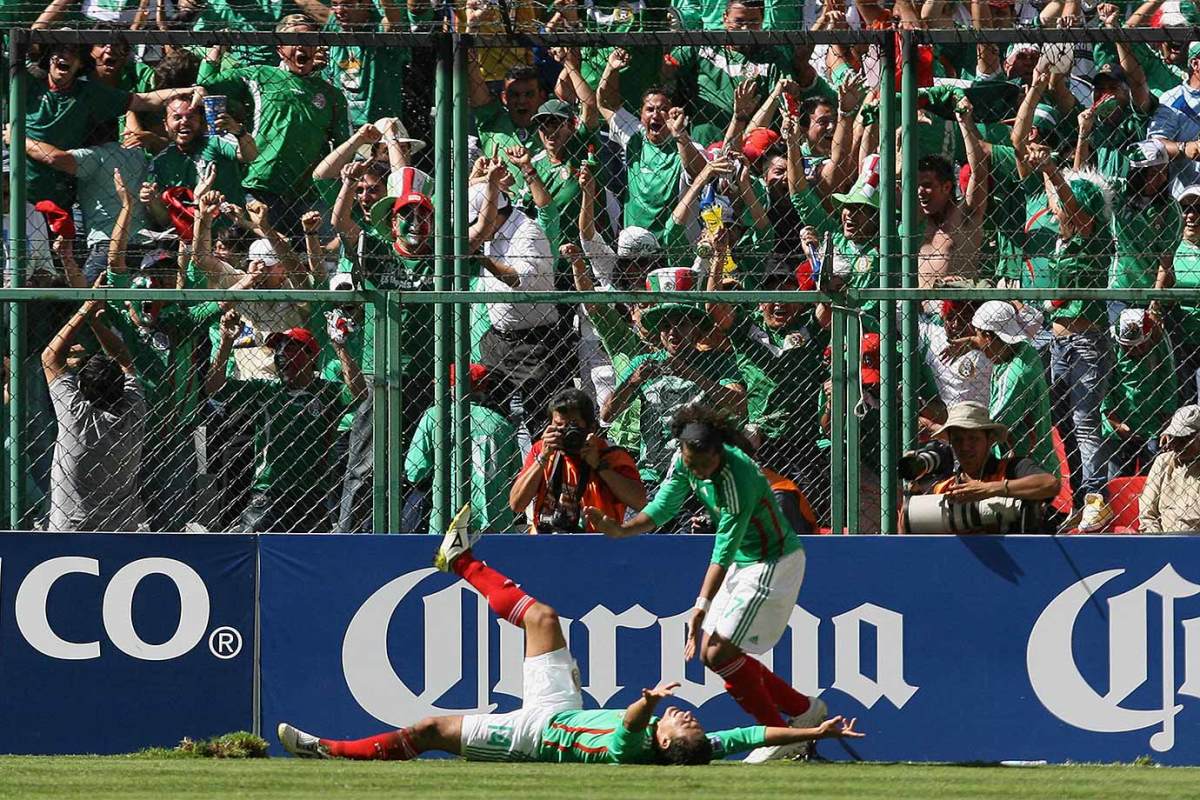
The U.S. took its first-ever lead at Azteca Stadium, but went on to lose 2-1 in what was a critical World Cup qualifier for Mexico. The win changed the tide for the then-struggling Mexican squad, as it went on to go 3-0-1 in its next four matches to earn a trip to South Africa. The U.S. still went on to finish first in CONCACAF qualification.
July 26, 2009 — Mexico 5, USA 0
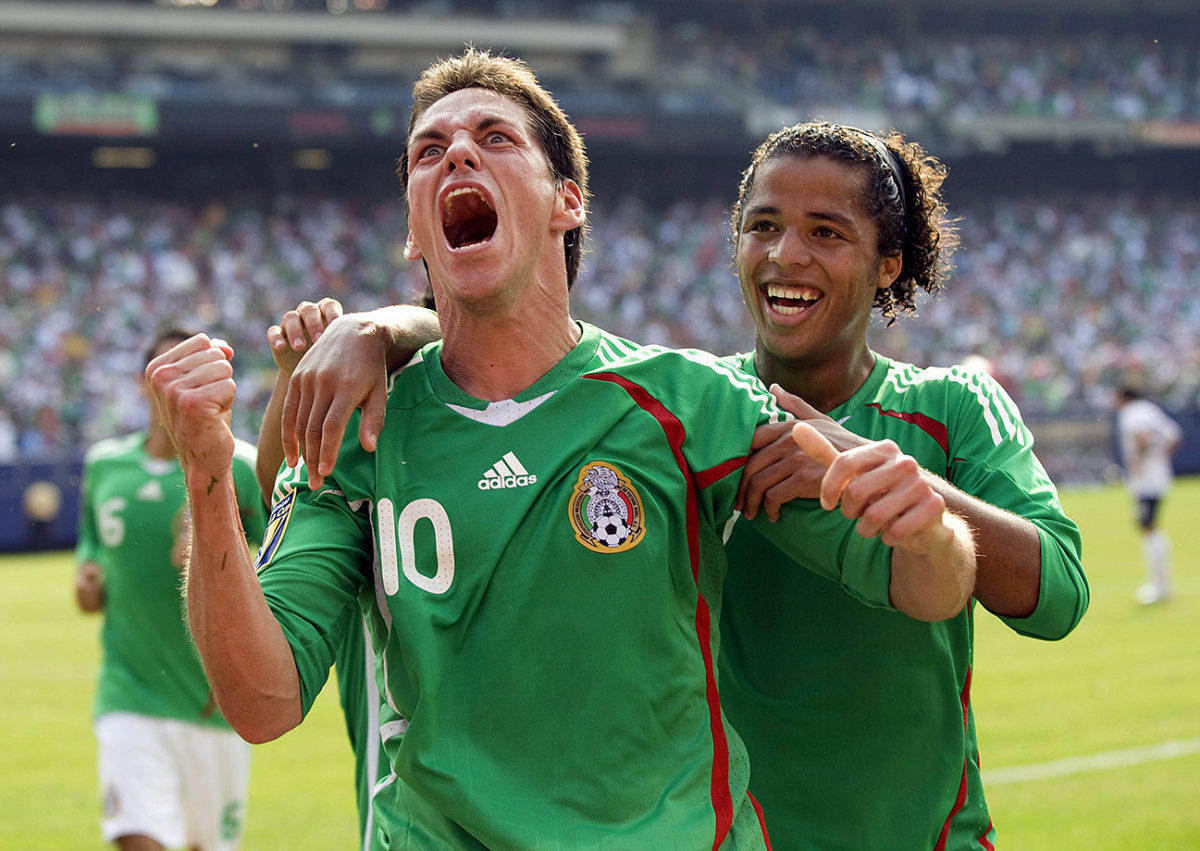
Mexico put an emphatic end to the Americans' 9-0-2 home streak against "El Tri." The Mexicans took the Gold Cup from the two-time defending champion, with five different players scoring goals in the second half at Giants Stadium.
February 11, 2009 — USA 2, Mexico 0
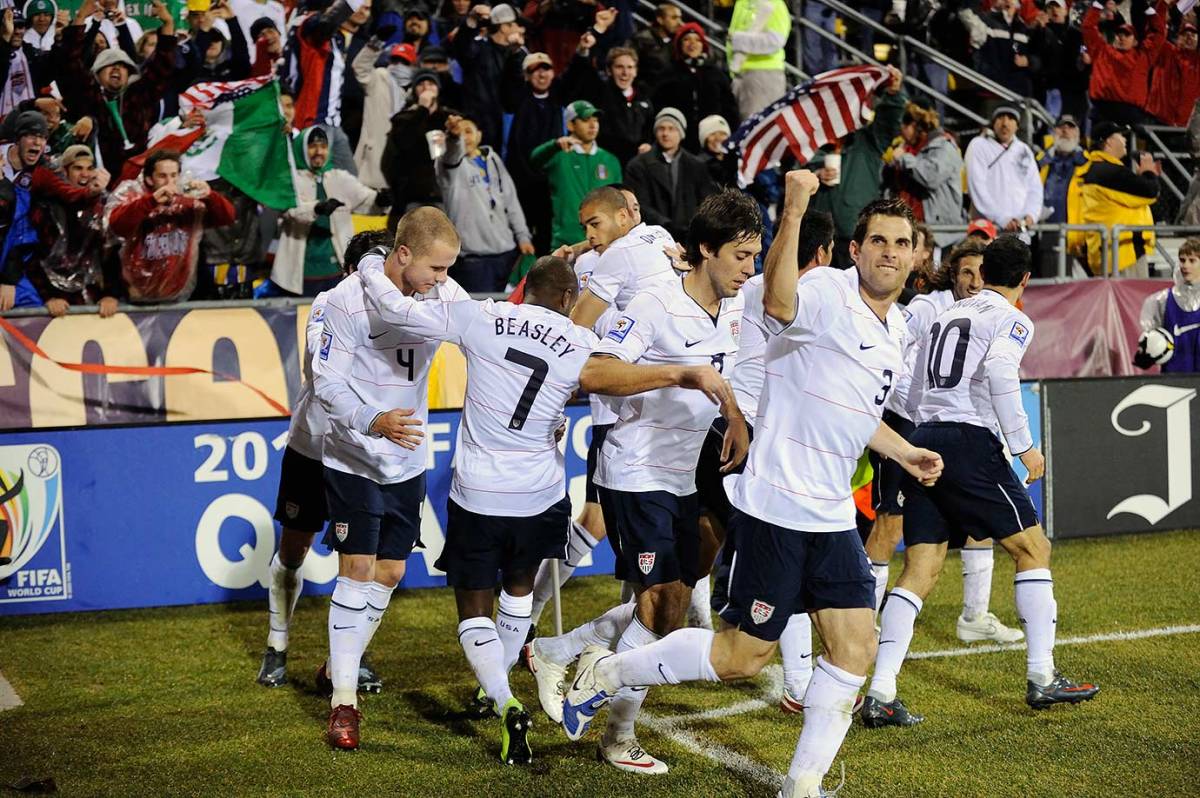
Two goals from Michael Bradley gave the U.S. another home victory over Mexico. It marked the eleventh consecutive time that the Americans had gone unbeaten against Mexico when playing on U.S. soil.
June 24, 2007 — USA 2, Mexico 1
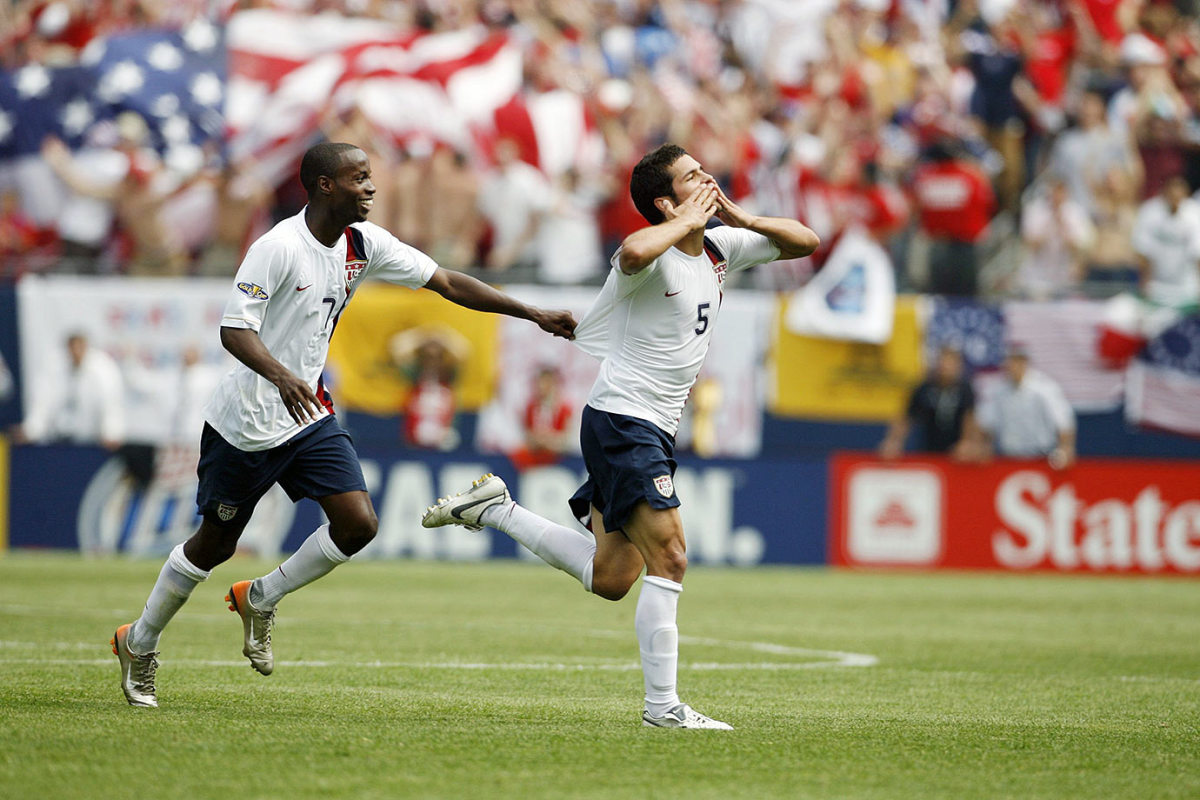
Down 1-0, second-half goals from Landon Donovan and Benny Feilhaber gave the U.S. the victory in the 2007 Gold Cup finals. The win earned the Americans a spot in the 2009 Confederations Cup, where they achieved their famous upset over Spain.
September 3, 2005 — USA 2, Mexico 0
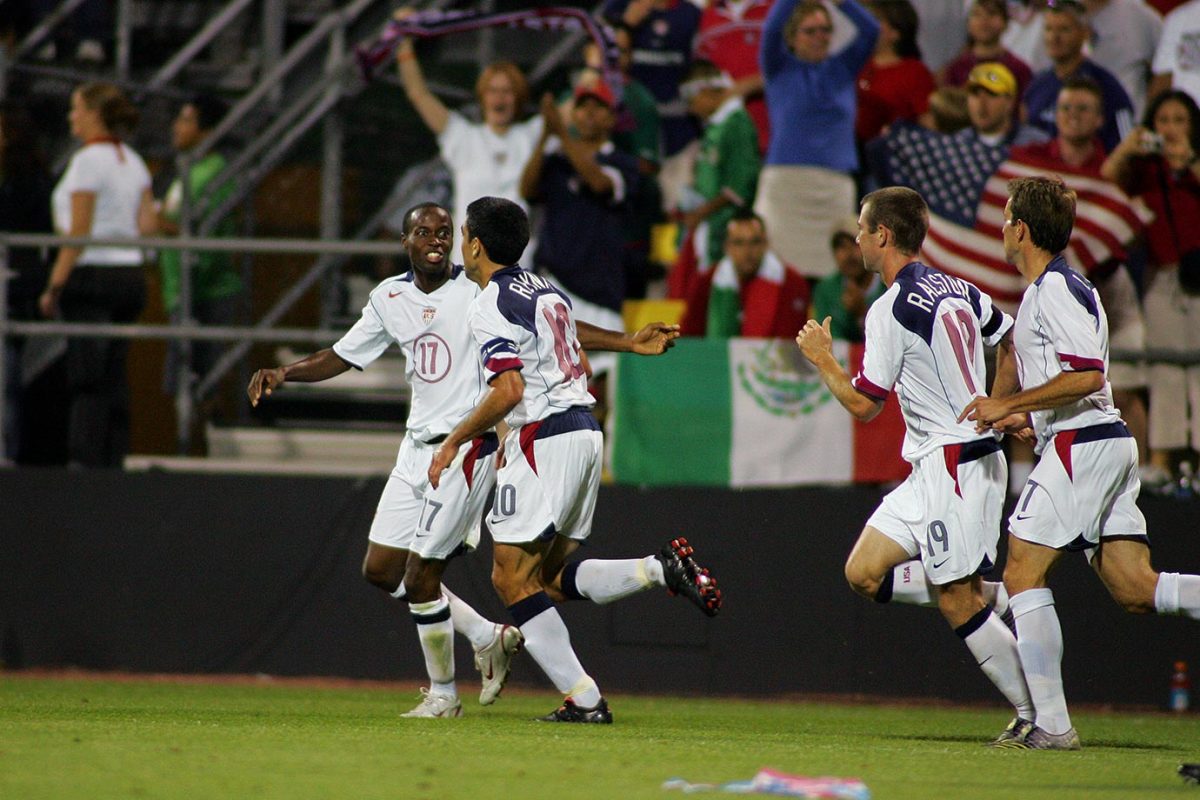
A 2-0 victory over "El Tri" clinched a spot in the 2006 World Cup, with goals coming from Steve Ralston and DaMarcus Beasley.
May 8, 2003 — USA 0, Mexico 0
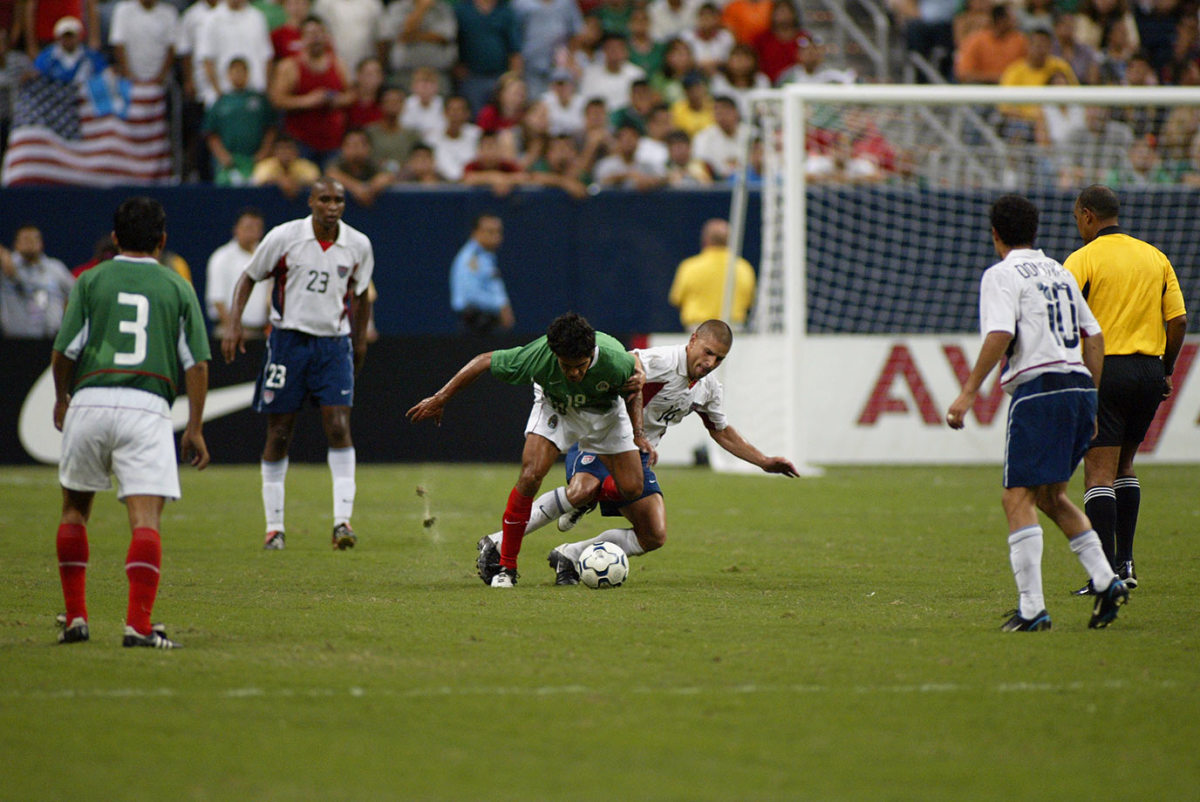
In their first meeting since the 2002 World Cup, an all-MLS squad of Americans played Mexico to a 0-0 draw in front of more than 69,000 people in Houston.
June 17, 2002 — USA 2, Mexico 0
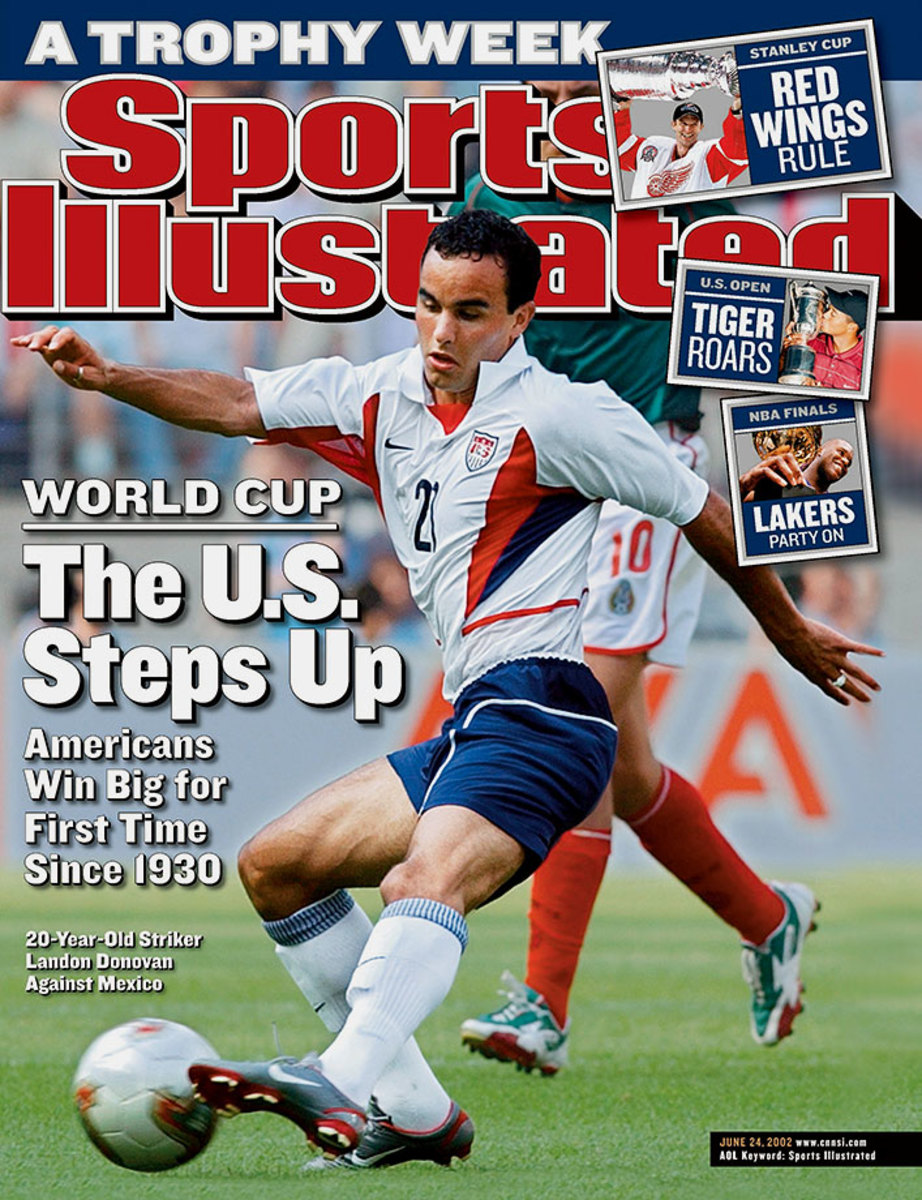
Arguably the biggest win in U.S. soccer team history came against its archrivals at the 2002 World Cup. Brian McBride and Landon Donovan gave the Americans a 2-0 victory in South Korea to send their team to the quarterfinals. It is the furthest stage the team has reached in the World Cup since 1930.
July 1, 2001 — Mexico 1, USA 0
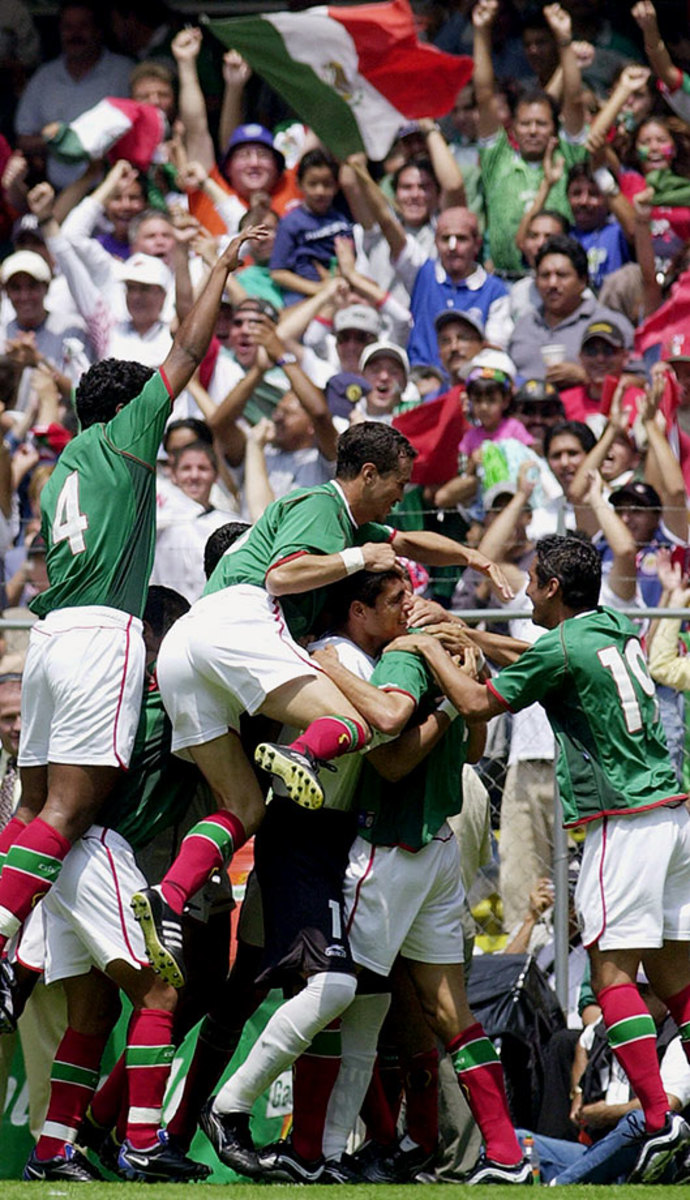
Needing a win to stay in contention for the 2002 World Cup, the Mexicans won 1-0 at Azteca Stadium, making their record 21-0-1 when hosting the Americans.
February 28, 2001 — USA 2, Mexico 0
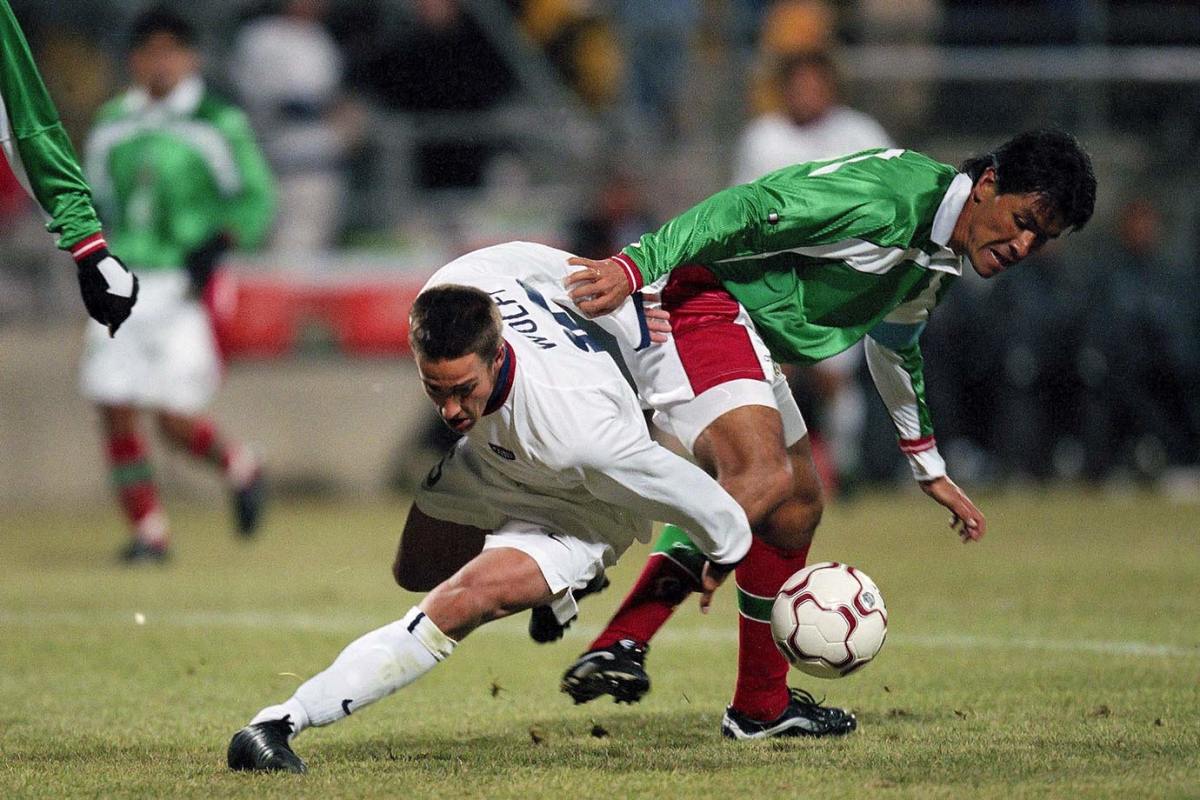
For the first time ever, the Americans won their third consecutive game against Mexico. The victory came in the World Cup qualifying finals and was held in Columbus, Ohio.
August 1, 1999 — Mexico 1, USA 0
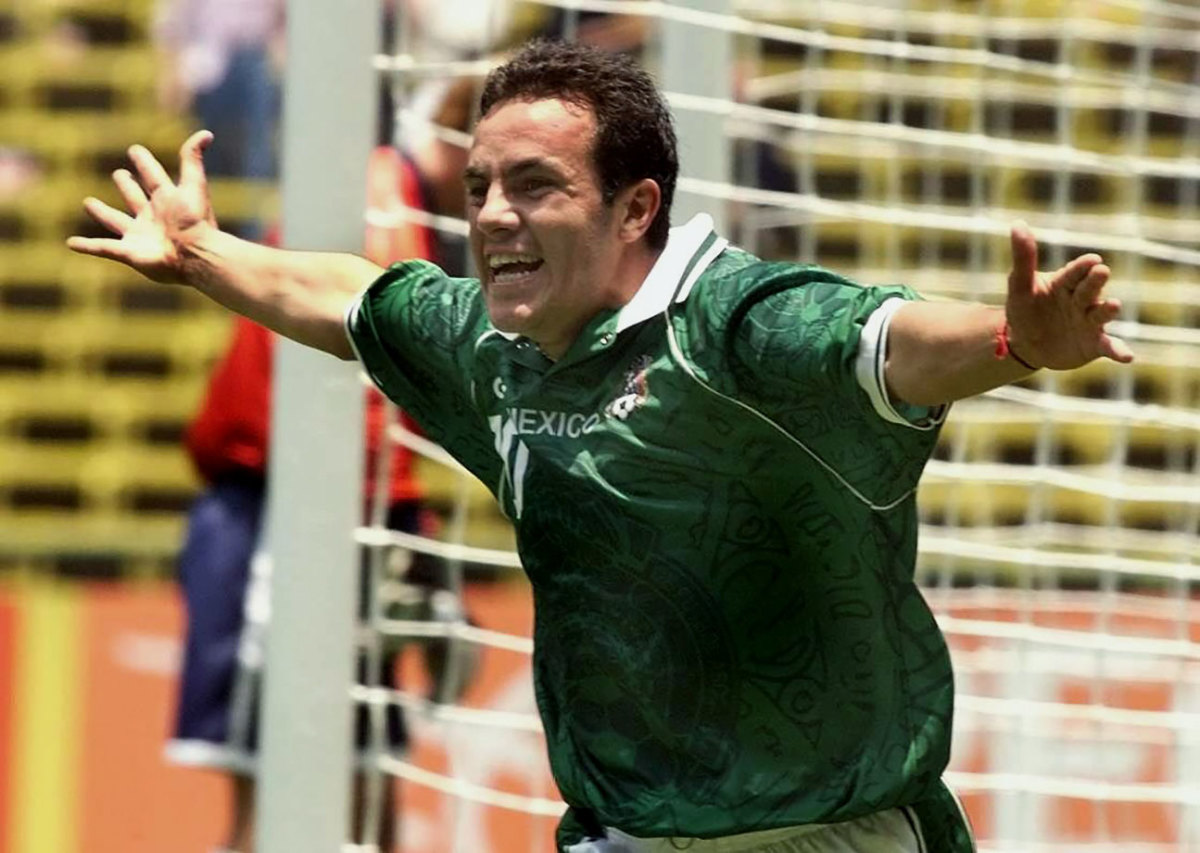
Cuauhtemoc Blanco's goal in extra time eliminated the U.S. in the semifinals of the 1999 Mexico City Confederations Cup. The win capped off a long tradition of Mexican dominance over the American side, a streak that shortly thereafter ended, as the Americans won the next three matches against their rivals.
July 17, 1995 — USA 0, Mexico 0
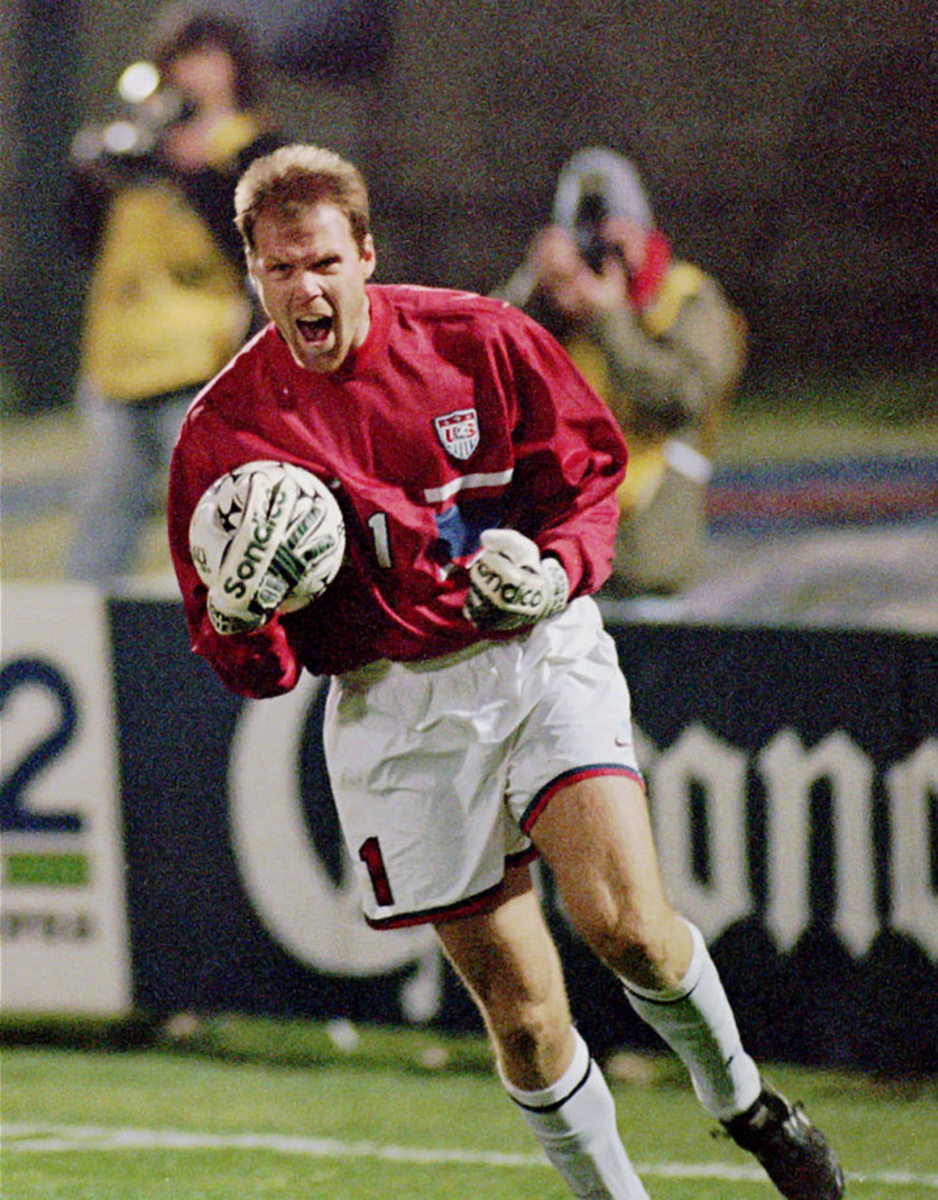
The USA outlasted Mexico in a penalty shootout to reach the semifinals of the 1995 Copa America. After a 0-0 draw, goalkeeper Brad Friedel was the hero in PKs, making two saves. The U.S. made all four of its attempts and advanced.
